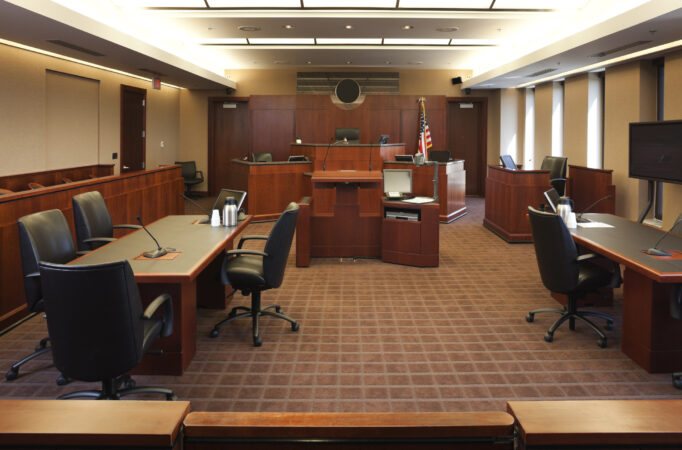Litigation: Latest Legal Blogs and News
Pennsylvania Supreme Court Clarifies Considerations for Venue Transfer
In Bratic v. Rubendall, 99 A.3d 1 (Pa. 2014), the Pennsylvania Supreme Court addressed and clarified the application of venue rules and venue transfers on the basis of forum non conveniens. The Bratic decision offers defendants a much more robust set of options for precluding a plaintiff from venue shopping.
The Pennsylvania Supreme Court laid out the basic requirements for a motion to transfer venue on the basis of forum non conveniens in Cheeseman v. Lethal Exterminator, Inc., 701 A.2d 156 (Pa. 1997). After years of diffuse and unpredictable results, Cheeseman held that a petition to transfer venue should be granted only if the defendant “demonstrate[es], with detailed information on the record, that the plaintiff’s chosen forum is oppressive or vexatious to the defendant.” Cheeseman, 701 A.2d at 162. Thus, to have a case transferred under Pa.R.C.P. 1006(d)(1), the moving party (almost always a defendant of some sort) “must show the chosen forum is either oppressive or vexatious.” Bratic, 99 A.3d at 8.
In the wake of the Cheeseman opinion, the Pennsylvania Superior Court interpreted these fairly simple requirements in sometimes incommensurable ways. A majority of the Superior Court decisions address concerns that either Philadelphia County or (to a lesser extent) Allegheny County would be plaintiff friendly. For instance, in Walls v. Phoenix Ins. Co., 979 A.2d 847 (Pa. Super. 2009), the Superior Court rejected a forum challenge to Philadelphia venue based on the inconvenience to plaintiff, which was not located in Philadelphia. The Court held that “since the burden [to transfer venues] is at all times on the defendant, the plaintiff’s putative inconvenience is of minor relevance.” Id., at 851. Further, the fact that the particular dispute at issue did not take place in the plaintiff’s chosen forum were disregarded: “Claims by a defendant that no significant aspect of a case involves the chosen forum are not the type of record evidence that proves that litigating the case in the chosen forum is oppressive or vexatious.” Borger v. Murphy, 797 A.3d 309, 312 (Pa. Super. 2002).
Much of the Superior Court’s jurisprudence placed a tremendous burden on the moving party to establish facts sufficient to show oppressiveness or vexatiousness. In Bractic, the Supreme Court stepped in to address the burden of evidence necessary to support a motion to transfer and, in doing so, provided defendants with a bevy of arguments previously unavailable.
In Bratic, the moving defendant submitted seven affidavits in support of the motion to transfer, each of which were substantially similar. Each stated that it would be burdensome to have to travel to Philadelphia County for the purposes of the litigation (for depositions, trial, etc.). The Superior Court held that these affidavits were insufficient under Cheeseman to establish oppressiveness or vexatiousness on record. Bratic, 99 A.3d at 9. The Supreme Court held otherwise, finding that an affidavit of record that articulates basic hardship for the moving party could very well support transfer of venue. Id. at 9-10.
Some of the key takeaways of the Bratic opinion are as follows:
- Whereas the Superior Court case law granted tremendous deference to a plaintiff’s right to choose venue, the Bractic court notes that this deference is out of respect for the convenience of the plaintiff, not whether one venue is more or less likely to award a higher verdict. This means that the plaintiff’s choice of venue is not sacrosanct: it is but one of many considerations at issue when examining a motion for venue transfer.
- An affidavit made in support of a motion to transfer venue need be sufficiently detailed to establish actual hardship, but need not be pedantically exact. “The trial judge need not be told like a child how the distance in and of itself makes things more disagreeable and disruptive to the persons obliged to travel. Nor is it a secret requiring iteration that trial in Dauphin County would provide easier access to local appellants and their local witnesses, as well as the relevant court documents on which the very case is based. Further, given the witnesses’ respective job titles, we cannot agree with the Superior Court that the affidavits were insufficient to enable the trial court to intuit the professional oppressiveness, more than inconvenience, that is patent therein. Indeed, if a reviewing court may surmise upon no record evidence at all that some witnesses will be paid, it should not be heard to criticize the trial court’s crediting actual affidavits from witnesses that would have their businesses interrupted for days at a time, to their obvious personal and financial detriment.” Id. at 10.
- The trial court now has a great deal of discretion in determining whether to transfer venue. Previously, the law interpreting the Cheeseman decision often handcuffed the trial court into denying transfer.
Ultimately, the most important result of Bratic is that defendants are again provided a legitimate shot at preventing venue shopping by a plaintiff.
About Us
The litigation attorneys at Houston Harbaugh, P.C., are accomplished business trial lawyers, providing comprehensive support in litigation across a broad spectrum of matters throughout Pennsylvania, West Virginia, Ohio and other jurisdictions upon a special admission basis. Our clients are regional and national small, medium and large companies and individuals who seek well planned and aggressive, but cost effective litigation. We counsel, we budget, we have a deep bench, we act quickly when needed and we have experienced trial lawyers who know the courts and bench. We serve regularly as local counsel for some of the largest law firms in the country when they have matters in this region.

Henry M. Sneath - Practice Chair
Co-Chair of Houston Harbaugh’s Litigation Practice, and Chair of its Intellectual Property Practice, Henry Sneath is a trial attorney, mediator, arbitrator and Federal Court Approved Mediation Neutral and Special Master with 98 trial verdicts and extensive federal and state court trial experience in cases involving commercial disputes, breach of contract litigation, Artificial Intelligence (AI), intellectual property matters, patent, trademark and copyright infringement, trade secret misappropriation, DTSA claims, cyber security and data breach prevention, mitigation and litigation, employment and restrictive covenant litigation, probate trusts and estates litigation, construction claims, eminent domain, professional negligence lawsuits, pharmaceutical, products liability and catastrophic injury litigation, insurance coverage, and insurance bad faith claims. DTSALaw® Business Litigation. Pittsburgh Strong.®

Samuel H. Simon - Practice Chair
As co-chair of Houston Harbaugh’s Litigation Group, Sam focuses his practice on commercial/business litigation. Sam regularly represents clients in the construction, manufacturing, oil and gas, and wholesale/retail/ distribution industries, as well as individuals in matters such as:
- Construction litigation
- Environmental litigation
- Breach of contract disputes
- Oil and gas litigation
- Negligence
- Restrictive covenants (non-compete agreements)
- Civil rights
- Collections/creditors’ rights
- Lease disputes

